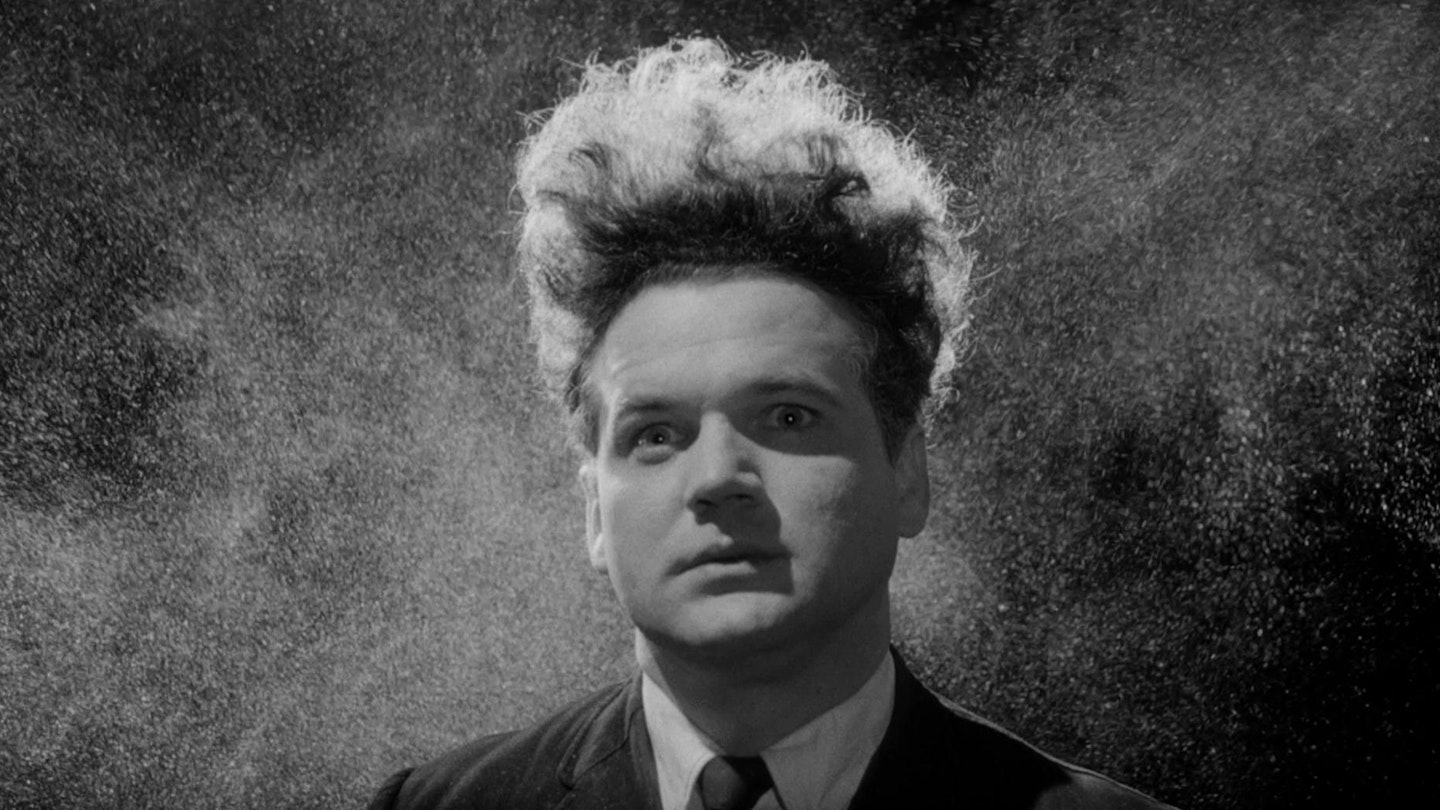It's hard to believe that David Lynch was in a six-year struggle to make Eraserhead on a piffling American Film Institute grant. It's harder still to believe that its closeted body horror and mind-blown surrealism have since almost become a part of the cultural landscape. Almost. For no matter how many cheesy pop videos or arty horror flicks rip off its (very late-70s) aesthetic of slimy industrial decay, this film remains as powerful, original and disturbing as ever.
The central conceit of boy-meets-girl-has-mutant-baby is still the stuff of American Gothic nightmares and Lynch's repertoire of soft squelches, thin skins, horrible blobs and panicky gestures remains an enduring archetype of puritan sexual disgust. What is surprising is how Jack Nance's grumpily delicate performance as the frustrated father, Henry, has become a period piece. With his trademark props pens in breast pocket, electro-shock hair-do, white socks he has come to resemble an old silent comedian stranded in a Bunuel twilight zone where the familiar punch-lines don't work anymore. He is at once more charming and less grotesque than he used to be.
What emerges most clearly from the film, post-Twin Peaks, is the offbeat humour. The old black comedy is still there Henry's crazy in-laws and their nervous tics, the mini-chickens which come alive on the plate, the final infant apocalypse but it is now boxed in by a more insistent tone of uncanny menace which surely amounts to a put-on. Think of the smiley lady-behind-the-radiator stomping the foetal worms which are ruining her act, or the creepy, echoey sound-effects, or Nance's puzzled reaction shots they are like that moment of blankness which precedes a surprise party. Except, with Lynch, the blankness goes on forever and the party never happens.



